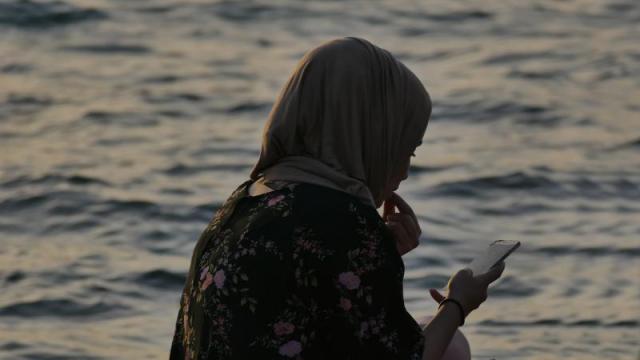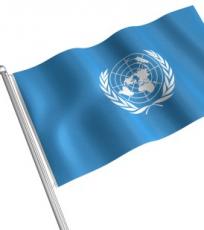Productivity Commission seeking feedback on immigration inquiry
Wed 22 Sep 2021
The Productivity Commission is inviting feedback on their inquiry into immigration policy settings.

The Government asked the Productivity Commission to conduct an inquiry into what immigration policy settings would best facilitate New Zealand’s long-term economic growth and promote the wellbeing of New Zealanders.
Submissions on the Immigration Settings inquiry are open until 24 December 2021. However, the Productivity Commission has also said if you have information you would like them to consider for the Preliminary Findings and Recommendations you need to make your submission before the end of September.
Update: The Productivity Commission published Preliminary findings and recommendations in November 2021.
If you have evidence or perspectives on immigration policy you think they should know about you can also contact the Commission at info@productivity.govt.nz.
To make a submission write your feedback and then upload the file through the online submission form.
The inquiry is taking a system-wide view of immigration settings. This will consider the impact of immigration on productivity and wellbeing. This could include the labour market, housing and associated infrastructure, and the natural environment.
The Productivity Commission Issues Paper (June 2021) sets out the key issues for the inquiry.
The Commission expects to publish the Preliminary findings and recommendations in October 2021. The Commission will invite submissions on these recommendations. A final report is expected to be presented to Government in April 2022.
You can subscribe to updates from the Productivity Commission.
>Update: The Productivity Commission published their final report from the inquiry, Immigration - Fit for the Future and the supporting report Immigration - by the numbers in April 2022 .
Related news and reports
On 1 August 2021 Prime Minister Jacinda Ardern formally apologised (read her speech) to Pacific communities for the Dawn Raids in the 1970s. Academic Dylan Asafo and social justice advocate Will 'Ilolahia have called for the government's apology to include amnesty and offer a pathway to residency for people who are overstaying their visas. In an article in Newsroom, Asafo argued that:
"The Government must also grant amnesty to all people who are overstaying their visas and provide them with equitable pathways to permanent residency (as Teanau and others are calling for). To do this, it must make several changes to our current immigration laws and policies that allow the racist legacy of the Dawn Raid era to persist today."
Asafo goes on to criticise issues with a primary pathway to residency, the Skilled Migrant Category Resident Visa, writing:
"While some might find this visa pathway to be fair and reasonable, these seemingly objective requirements (e.g. ‘skilled’ work experience, income level, qualification level and English language capabilities) are thinly veiled proxies for race (as well as gender, disability status and class). They operate to systematically ‘filter out’ and exclude a ‘second-class tier of migrants, most of whom are people of colour from developing countries."
The Ministry for Pacific Peoples has more information about the Dawn Raids Apology.
The final report and research briefs have been published from the Migrant and refugee women in Australia: The security and safety study (2021) from Monash University and the HarmonyAlliance: Migrant and Refugee Women for Change in Australia. The national study surveyed almost 1400 migrant and refugee women in Australia about their experiences of safety and security, with a focus on domestic and family violence. Their key findings include that temporary visa holders reported higher levels of domestic and family violence and were most likely to experience controlling behaviours and migration-related abuse and threats.
The Ministry of Business, Innovation and Employment (MBIE) published a report identifying policy issues and operational and practice issues within Immigration NZ that present barriers to migrant victims obtaining family violence visas. The report, Recent Migrant Victims of Family Violence Project 2019: Final Report (2020), describes how current policies and practices can contribute to preventing migrant women from seeking or receiving help. This can force women to choose between staying in abusive relationships or returning to their home country, or in some cases force women to return to their home country, leaving their children behind with the abusive ex/partner.
In their Concluding Observations on New Zealand's 8th periodic report, the United Nations Committee on the Elimination of Discrimination against Women highlighted issues for migrant women and their children, including women who are victims of violence and abuse. The Committee called on the government to revise immigration laws, provide support services for migrant women who are victims of violence and ensure migrant women understand their rights and can lodge complaints.
For more information about violence against women from ethnic and migrant communities, see:
NZFVC Issues Paper Ethnic perspectives on family violence in Aotearoa New Zealand (2019) by Rachel Simon-Kumar
Episode 5: Shakti of the Breaking Silence documentary series, produced by Magnetic Pictures for Stuff with the support of NZ On Air and published on RNZ
Reports published in 2020 from the Australian research project: Multicultural and settlement services supporting women experiencing violence research.
For related research and information see the quick topic searches in our library for Migrants, Refugees and Asian peoples.
Related media
Immigration - who's in, who's out, who's waiting?, RNZ, 17.08.2021
Not Kiwi enough: The iron wall that is New Zealand's immigration system, Stuff, 14.08.2021
Faafoi reviews rights of youth stuck in residency visa queue, Newsroom, 13.08.2021
Illegal: Is it time for another overstayer amnesty?, Stuff, 18.05.2021
Productivity Commission inquiry into immigration settings, Beehive media release, 03.05.2021
Image: Sora Shimazaki from Pexels






